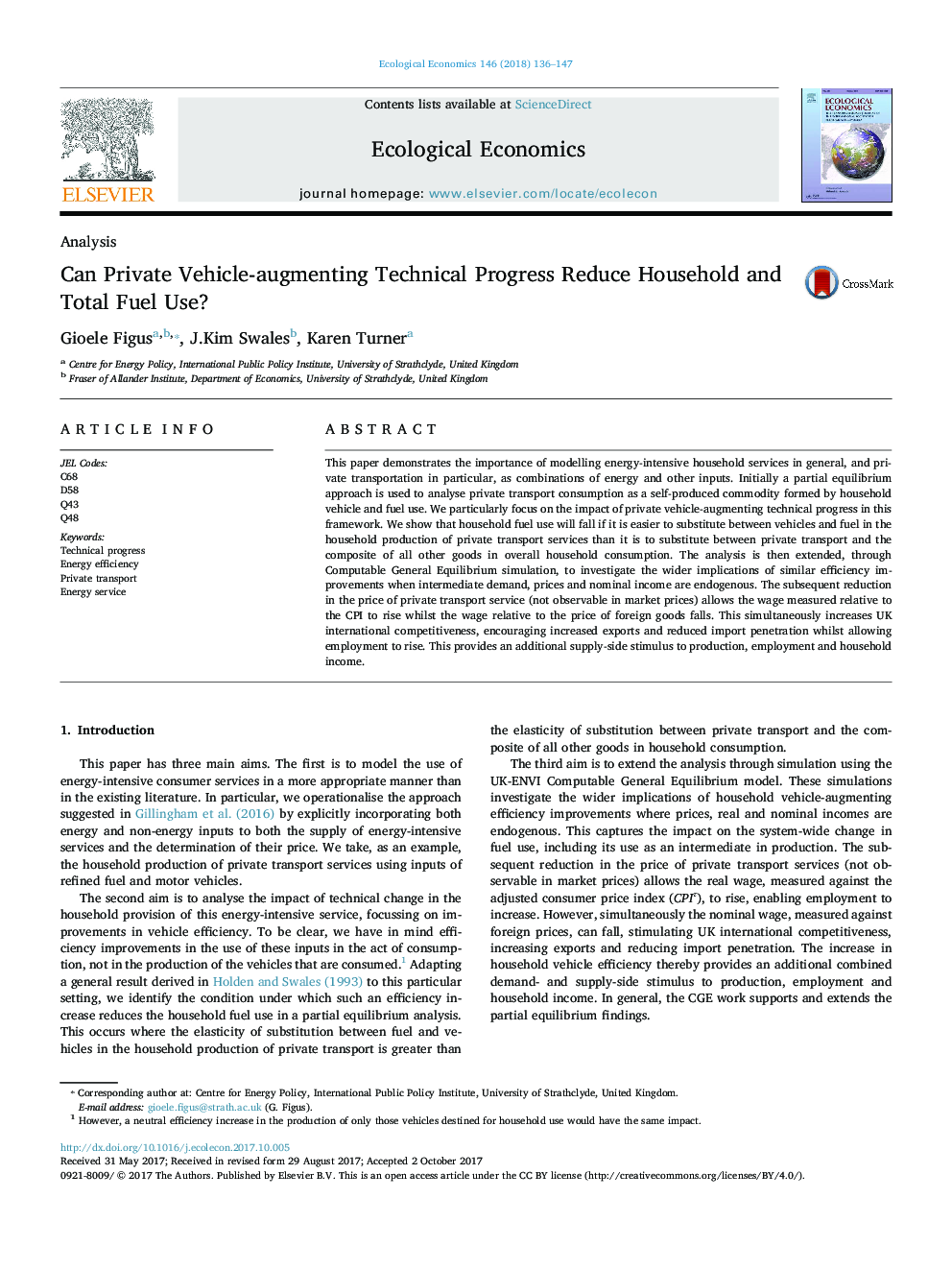| Article ID | Journal | Published Year | Pages | File Type |
|---|---|---|---|---|
| 5048497 | Ecological Economics | 2018 | 12 Pages |
â¢Energy-intensive consumer services should be modelled as a combination of energy and technology.â¢Miles travelled are self-produced by households using refined fuels and vehicles.â¢Fuels use reduction may result from vehicle-augmenting technical progress.â¢Failing to adjust the CPI for efficiency gains underestimates growth impacts.
This paper demonstrates the importance of modelling energy-intensive household services in general, and private transportation in particular, as combinations of energy and other inputs. Initially a partial equilibrium approach is used to analyse private transport consumption as a self-produced commodity formed by household vehicle and fuel use. We particularly focus on the impact of private vehicle-augmenting technical progress in this framework. We show that household fuel use will fall if it is easier to substitute between vehicles and fuel in the household production of private transport services than it is to substitute between private transport and the composite of all other goods in overall household consumption. The analysis is then extended, through Computable General Equilibrium simulation, to investigate the wider implications of similar efficiency improvements when intermediate demand, prices and nominal income are endogenous. The subsequent reduction in the price of private transport service (not observable in market prices) allows the wage measured relative to the CPI to rise whilst the wage relative to the price of foreign goods falls. This simultaneously increases UK international competitiveness, encouraging increased exports and reduced import penetration whilst allowing employment to rise. This provides an additional supply-side stimulus to production, employment and household income.
